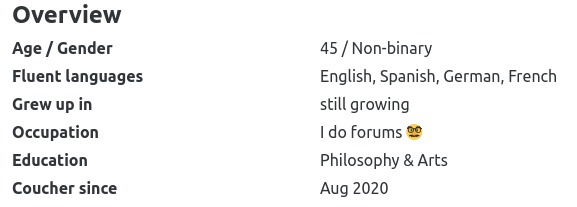Just read this research paper on verifying identity through informal social connections, rather than formal credentials. It’s a bit academic and aimed at a slightly different use case. But wanted to share it because I found it quite inspiring to think again about what identity verification and trust actually mean for a platform like Couchers:
How to verify and trust the identity of potential guests came up a few times recently. We also had rather extensive discussions early on how to formalize verification and community trust down the line. Both the recent topics as well as our earlier discussions involved checking state-issued id cards.
I found the paper inspiring in the sense that this perspective is not such a universal solution. We could probably first ask more specifically which features are actually relevant when we talk about identity and trust on Couchers. And to me that indeed doesn’t necessarily entail that someone is a certain formally verified person. But rather that someone is
- who they claim they are on their profile
- respecting the basic rules of the platform
We already implemented feedback features about respecting basic rules, likes asking members if they felt comfortable and respected during an exchange they had with another member. It seems we could follow a similar approach with regards to identity. So rather than framing identity as a state id check, we could design information like the current Overview section more like a community-verified id. Right now we have this look:

We could include a basic random feedback question about such statements when members leave feedback. E.g. “Nolo says they’re 45 yrs old. Did you feel that’s more or less accurate?”
Well, just some thoughts I wanted to share here.